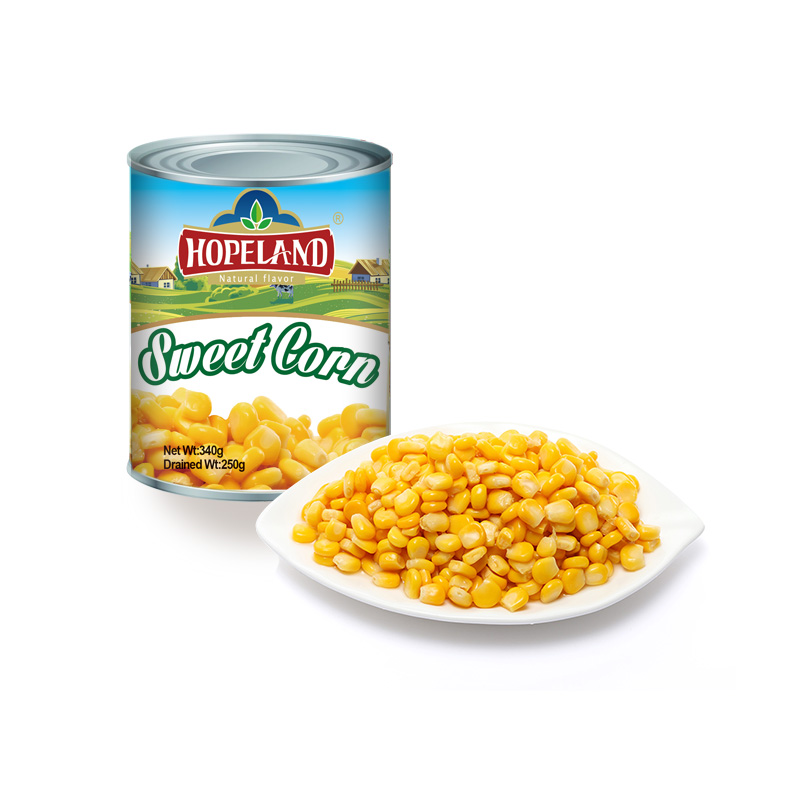Sweet corn is often enjoyed for its delicious taste and versatility, but many wonder if it’s fattening. The good news is that sweet corn is not typically fattening when consumed in moderation as part of a balanced diet. Here's why:
1.Calorie Content
Kernel corn is relatively low in calories, with only about 90-100 calories per ear. This makes it a great option compared to many higher-calorie foods. Whether you're enjoying it as a side dish or adding it to salads or soups, sweet corn can be part of a healthy, low-calorie meal plan. The key to enjoying sweet corn without worrying about weight gain is portion control and balanced food choices throughout the day.
2. Nutritional Benefits
Aside from being low in calories, sweet corn is packed with essential vitamins and minerals. It's a rich source of vitamin C, which supports immune function, and B vitamins like thiamine and folate, which are important for energy metabolism. Sweet corn also provides minerals like potassium, manganese, and magnesium, all of which contribute to maintaining a healthy body. These nutrients help make sweet corn a nutritious choice that can support overall health when eaten regularly.
3. Fiber Power
Each ear of sweet corn contains about 2 grams of fiber. Fiber is essential for digestive health, as it promotes regular bowel movements and helps prevent constipation. Additionally, fiber can aid in weight management by promoting feelings of fullness, which can help control overeating. Including fiber-rich foods like sweet corn in your diet can also assist in maintaining healthy blood sugar levels, making it a beneficial option for those managing their weight or blood sugar.
4. Low in Fat
Naturally, sweet corn is very low in fat, containing only about 1 gram per ear. This makes it a great choice for those watching their fat intake, especially if they are aiming to reduce the amount of unhealthy fats in their diet. Keeping the fat content low is important for weight control and heart health, and sweet corn is an excellent way to enjoy a flavorful food without adding unnecessary fat.
5. Carbohydrates and Portion Control
Sweet corn does contain carbohydrates—around 19 grams per ear—which can be a concern for those on low-carb diets or managing conditions like diabetes. However, when enjoyed in moderate amounts, sweet corn can still be part of a healthy diet. Monitoring portion sizes is crucial, and pairing sweet corn with protein or healthy fats can help balance its impact on blood sugar levels. Cooking methods also matter: boiling or grilling sweet corn without adding excessive butter or oil keeps it healthy and low in calories.
Is Canned Sweet Corn Healthy?
Canned sweet corn is a convenient and healthy option, especially when it contains just corn and water. Here’s why canned sweet corn can be a nutritious addition to your pantry:
1. Nutrient-Rich
Canned sweet corn retains many of the same vitamins and minerals as fresh corn. It’s rich in fiber, which aids digestion, and contains important nutrients like vitamin C, B vitamins, potassium, and magnesium. These nutrients support everything from heart health to immune function, making canned sweet corn a great way to get essential vitamins and minerals year-round.
2. Low-Calorie and Low-Fat
A half-cup serving of canned sweet corn typically contains only 77-100 calories and about 1 gram of fat, making it a light and healthy choice for meals. Its low-calorie nature allows you to enjoy its taste and nutritional benefits without significantly increasing your caloric intake. This makes it ideal for those watching their weight or trying to eat lighter meals.
3. Protein and Fiber
Canned sweet corn also provides about 3 grams of protein and plenty of fiber per serving. Protein is vital for muscle repair and overall body function, while fiber helps regulate digestion and supports long-term health. The combination of these two nutrients makes canned sweet corn not only tasty but also filling, which is beneficial for those managing their weight or looking for satisfying, nutrient-dense foods.
4. Antioxidant Content
Canned sweet corn is rich in antioxidants, such as vitamin C, lutein, and zeaxanthin, which are particularly beneficial for eye health. These antioxidants help protect your eyes from harmful blue light and may reduce the risk of age-related macular degeneration. Including canned sweet corn in your diet can provide these protective benefits, especially if fresh corn is not available.
5. Things to Watch For: Sodium and BPA
While canned sweet corn is generally healthy, there are a few things to consider. Some brands add salt to their canned products, so it’s important to check the label and choose low-sodium versions to avoid excess salt intake. Additionally, canned foods sometimes contain BPA (bisphenol A), a chemical found in the lining of some cans. Fortunately, many manufacturers are now moving away from using BPA in their packaging, so look for cans labeled BPA-free.
Conclusion
Sweet corn, whether fresh or canned, is a nutritious and low-calorie option that can easily fit into a healthy diet. Packed with essential vitamins, fiber, and antioxidants, it offers numerous health benefits while being naturally low in fat. When choosing canned sweet corn, opt for versions with just corn and water and be mindful of added sodium. Enjoy sweet corn in moderation, and you’ll find it to be a delicious, versatile addition to your meals without being fattening.

